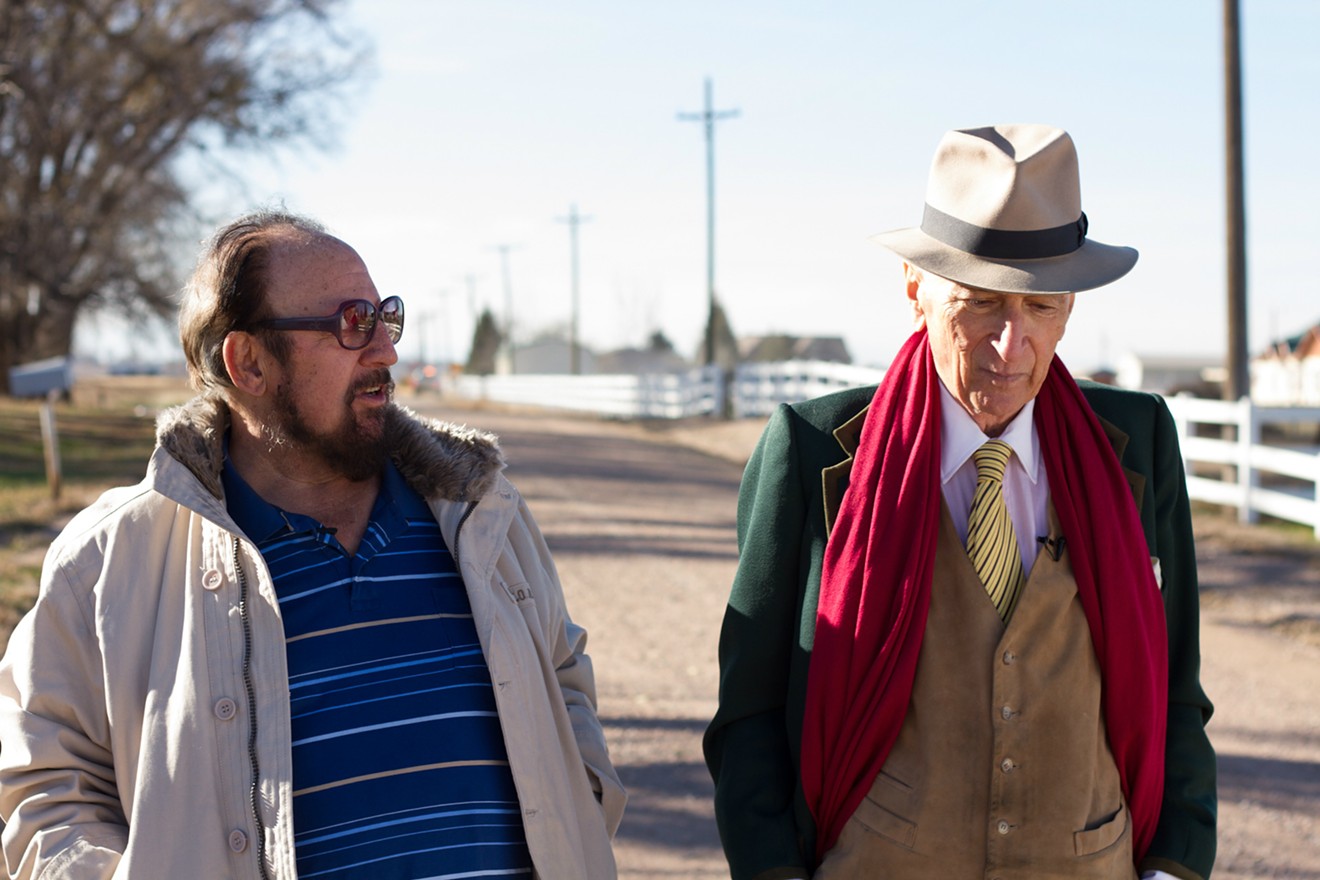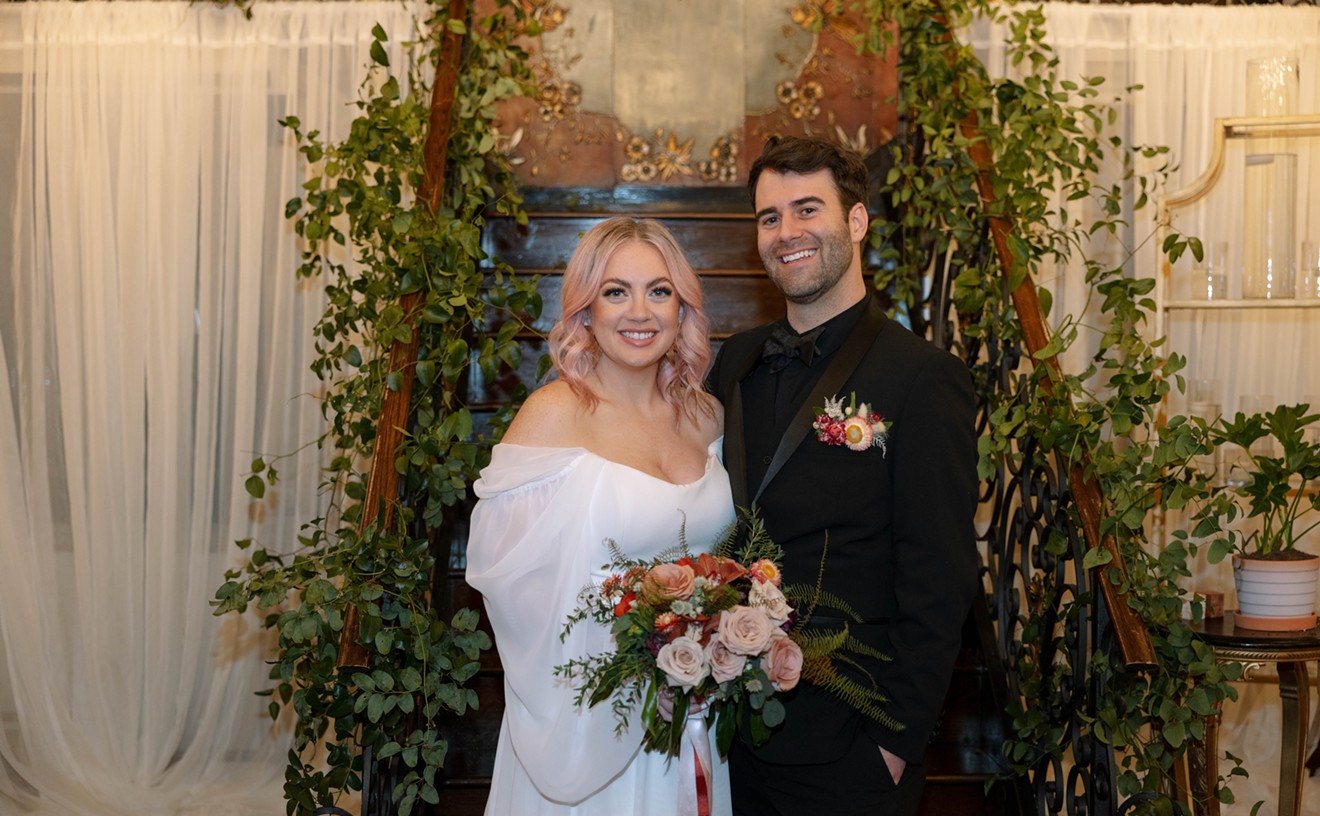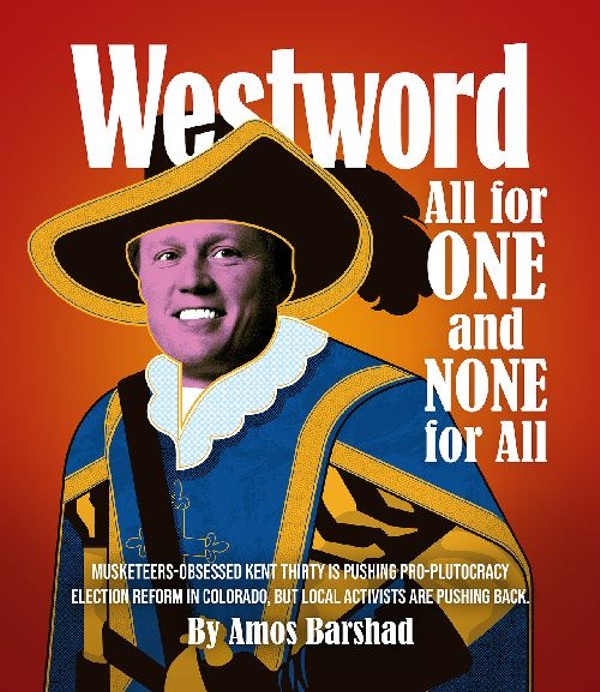There's a fascinating moment in the new Netflix documentary Voyeur when the filmmakers ask the protagonist, Gerald Foos — who allegedly spied on guests from the attic of the now-defunct Manor House Motel in Aurora that he owned — whether he regretted telling his story to renowned journalist Gay Talese, who published a New Yorker article, then book, about Foos in 2016.
Talese, who is sitting next to Foos in his living room when the filmmakers ask the question, loses it.
“What you've done is wrong!” he yells at the cameramen. “Now, with me here, I'm affecting his answer. You understand what I'm saying?!”
Turning to Foos, he continues: “What's wrong about this is they already asked you that question with me not there! And then with me here, they're trying to get you to answer differently, which could expose you as a hypocrite! Don't you understand this?”
By the end of Talese's tirade, he's so upset that he ends the interview. The effect, which may have been deliberately orchestrated to avoid Foos's response, is that we never actually get a straight answer during this exchange from the "voyeur" about whether he regrets his decision to work with Talese.
I can tell you from personal conversations with Foos for a series of articles I wrote for Westword last year that he definitely has an answer:
“If I knew what I know now, I wouldn’t have exposed myself," Foos told me shortly after the New Yorker article came out on April 11, 2016. “It’s been more trouble than it’s worth.”
Foos asked that I not print that part of our conversation until Talese's book, The Voyeur's Motel, came out on July 12, since he believed he was under a media embargo from the book's publisher, Grove/Atlantic.
The book had been in the works for decades. Talese began corresponding with Foos in January 1980, when he received a handwritten letter from the motel owner inviting him to Colorado. In the letter, Foos explained that he appreciated Talese's writing on sex in America, and had been conducting his own, quasi-scientific study of guests at his motel, especially their sexual acts, and was compiling detailed journals of what he'd seen. Talese was intrigued. He agreed to meet Foos at his place on East Colfax Avenue, the Manor House Motel, and saw firsthand the one-way ventilation screens Foos had installed in the rooms' ceilings that allowed him to observe guests from the attic. The two would correspond regularly after that. But Talese waited until 2016 to publish anything about it — well after the statutes of limitation had expired, so neither he nor Foos could be charged for any criminal wrongdoing.
I agreed to Foos's condition to keep part of our call off the record for a few months — even as all hell was breaking loose around the credibility of the story. The Netflix documentary explores much of that, including a Washington Post investigation that found that Foos didn't own the motel for an eight-year period during which he continued making journal entries describing his guests performing various sexual acts.
During my phone call with Foos, I brought up the Washington Post article and the property records its reporters found proving that Foos didn't own the motel for eight years.
“If you’re off a couple years, is that such a big deal?” Foos responded. “It’s not, in my opinion. But some reporters think that if you’re off there, the whole book must be off."
Foos then admitted to withholding information from Talese.
“I heard [the other motel owner] died ten years ago, and that’s why I didn’t want to include him in the book. That’s why I didn’t tell Gay [Talese] about it," Foos said.
The implication, as best I could tell, was that Foos didn't want to slander the deceased person's name, since after the Washington Post article came out, Foos defended some of his suspect journal entries by claiming that the other owner still gave him access to the attic during that eight-year span.
Here was Foos admitting that he not only regrets working with Talese, but that he was lying to him.
Talese, a prolific journalist who has written for the New York Times and Esquire, has caught flak over the details he missed in Foos's story. And he has waffled in defending his book. Soon after the Washington Post report came out, he said the credibility of Voyeur's Motel was "down the toilet." Then he reversed course when Foos told him he still had access to the attic during the years 1980 to 1988, when the other owner possessed the Manor House Motel. Talese did not respond to requests to comment for this story.
There are other concerning details that the new Netflix film does not mention. In telling his story, Foos had visions of becoming a celebrity and making the talk-show circuit.
“If people want to really know about the life of the voyeur — if they want to know that I'm the greatest there ever was in the world — after the 12th of July, I will pick out certain people, maybe even do an exclusive with someone...I'm not sure yet,” he told me.
Foos said a writer with Vanity Fair had even flown in from Paris to speak with him during the time the film crew was following him, an interview that Talese's publisher allegedly killed before it happened, he said.
As if all of that weren't strange enough, the most bizarre part of my conversation with Foos was yet to come. Our talk concluded with the self-described voyeur offering me $300,000 related to his sports-memorabilia collection. The film mentions the collection briefly, but doesn't elaborate on Foos's scheme to make millions by selling signed baseballs and cabinets' worth of collectible sports cards. Here's an except from one of my articles last year, in which Foos told me about the collection and tries to get me to become his agent:
“I’m really interested in selling it, and I’m having difficulty,” Foos told me. “The reason I’m having difficulty is because my agent is in jail.”
“That would make it hard,” I observed.
“Yeah, he went back to his drinking. And he just got his third DUI in Minnesota. That’s how he ended up in jail. And he may even go to prison. And if he does that, he’s finished as my agent,” Foos continued.
“Well, what does he value [the collection] at?” I asked.
“Twelve.”
“Twelve thousand?”
“No, God — it’s valued at about twelve million!”
Foos added that some of the items are stored at a bank. The rest are protected at his house by “Anita and my shotguns. We even have laser beams.”
In order to research the article, Foos referred me to a website address, historicsportscollection.net, that his agent had put together.
Then, in another turn, he asked: “Well, actually, do you think you can sell it for me?
“There’s a big reward for anyone who sells this collection — and you’ve got an in. You know a lot about sports. That’s good. And I think you can do better writing about this sports collection than about that book. And if you sell this, I’m going to give you 5 percent. So let’s take a figure out. Say you sold it for six million, you get $300,000. And in addition to that, I would give you the house. I have a house that’s worth between $500,000 and $700,000. It’s not a mansion, just a nice, big two-story house. I’d give that to you because I don’t need it — and I don’t know what kind of family you have, sir.”
At this point, I was wondering what the hell was going on and why he thought I know a lot about sports. (I don’t.) But I answered his question.
“I’m single.”
“Oh, you’re single right now? But you’re thinking, right? The house will be great for when you get married.”
“That’s really tempting,” I responded. “But I don’t know about all the business offers you made, because there are some ethical considerations as a journalist....”
“You don’t have a contract with Westword saying you can’t have outside interests, right?”
“It’s possible. I’d definitely have to consult with someone about this,” I said.
He encouraged me to do so, after which I could come over to his place to see the collection. “I can unload the shotguns,” he said. (He later explained that this was a joke.)
“Look, I can tell you lots of things. I know a lot about life. Probably more than anybody that there is. I hate to brag like that, but it’s the truth,” Foos said. “I’ve done the one that you know about — that’s pretty impressive. If you get my age and you don’t know anything, then your life has been a waste.”
I told him I’d need to think over the whole offer of becoming his agent.
“You’re going to get friends with Gerald, and that’s important,” the voyeur said before hanging up.
Film & TV
Netflix's Voyeur Doesn't Capture the Full Story of Gerald Foos
“If I knew what I know now, I wouldn’t have exposed myself. It’s been more trouble than it’s worth,” says Voyeur subject Gerald Foos.

Author and journalist Gay Talese (right) and Gerald Foos, the Colorado motel owner who for years spied on his guests, are the focus of the Netflix documentary Voyeur.
Cris Moris/Courtesy of Netflix
[
{
"name": "Editor Picks",
"component": "17242653",
"insertPoint": "4",
"requiredCountToDisplay": "1"
},{
"name": "Inline Links",
"component": "18838239",
"insertPoint": "8th",
"startingPoint": 8,
"requiredCountToDisplay": "7",
"maxInsertions": 25
},{
"name": "Air - MediumRectangle - Combo - Inline Content",
"component": "17261320",
"insertPoint": "8th",
"startingPoint": 8,
"requiredCountToDisplay": "7",
"maxInsertions": 25
},{
"name": "Inline Links",
"component": "18838239",
"insertPoint": "8th",
"startingPoint": 12,
"requiredCountToDisplay": "11",
"maxInsertions": 25
},{
"name": "Air - Leaderboard Tower - Combo - Inline Content",
"component": "17261321",
"insertPoint": "8th",
"startingPoint": 12,
"requiredCountToDisplay": "11",
"maxInsertions": 25
}
]











